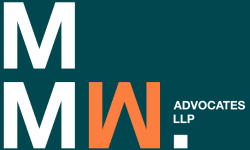
Success Equation
MMW is the next frontier in blockchain, fintech and regulations.
Innovators have come up with innovative ways within which people can access money, send money, receive money, borrow money or conduct transactions on their mobile phones. With applications like M-pesa and lending platforms such as Tala, Commercial Banks are being slowly edged out of daily transactions and associated fees.
Should the Central Bank of Kenya introduce the Central Bank Digital Currency and should Kenyans prefer a decentralized way of holding their money i.e by way of cryptocurrency, commercial banks are likely to face a further blow to their bottom line.
Cryptocurrencies such as Bitcoin are the most high profile applications of these technologies. However, the range of potential applications extends far beyond cryptocurrencies and includes, for example, trade execution and settlement systems, trade finance, supply chain management, asset registration, identity management (including for anti-money laundering and know your client purposes) and corporate governance.
Distributed ledgers, blockchains and smart contracts have the potential to transform business, government and society.
As financial institutions, governments and companies move from research and development to deployment of distributed ledgers, blockchains and smart contracts, they need to consider carefully the legal and regulatory implications of, and risks presented by, these transformative technologies.
However, this transformation is not without risk. Careful legal and regulatory analysis will be required as part of the risk assessment involved in using these technologies.
At MMW Advocates LLP we can help you analyse, manage and mitigate legal and regulatory risks associated with the use of distributed ledgers, blockchains, smart contracts and cryptocurrencies.
We support clients in the communication sector with competent authorities, and we draft legal documentation needed within licensing procedures.
The function of the regulatory compliance is one of the internal controls functions within the regulated financial institutions. For clients, we perform the role of an external compliance officer. Services include:
- Drafting legal documentation
(policies, risk assessments, opinions)
- Regulatory compliance checks
(general conditions, contracts, internal acts)
- Support in the process of introducing new products
(regulatory overview, compliance guidelines)
- Regulatory compliance assessment
(gap analysis)
- Communication with competent regulators
- Monitoring new legislation and preparing an action plan
- Plan for its implementation
- Organising training for employees on the topic of legal compliance
Due to the intertwining of technology and law, special knowledge is often required in order to prepare the contracts, which can only be provided by legal experts that understand technology as well. Examples of tech contracts are the following:
- software development agreement
- software licence agreement
- product development agreement
- technology development agreement
- research and development agreement
- financial assets’ custody agreement
- copyright transfer agreement
- escrow and custodial agreement (financial assets)
- IP waiver on source code
- hosting agreement
- cloud services agreement
- end user license agreement
- mobile app development agreement
- mobile app distribution agreement
- platform license agreement
- data processing and storage agreement
OTHER DOCUMENTATION
- legal opinions
- legal-comparative analyses
- legal risk assessments

